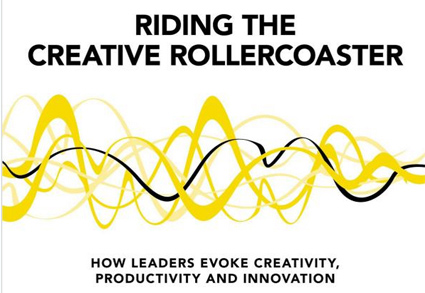Are Creativity & Innovation Essential to the Future of Leadership?

I have begun to read what promises to be a great book on the future of leadership:
“Riding the Creative Rollercoaster,
how leaders evoke creativity, productivity and innovation”
by Dr Nick Udall.
Within the first few pages Nick describes his passion for the future of leadership with words that resonate, inspire and excite me. He identifies a leadership threshold over which those leaders who have learned to step
“are able to open up a whole new world of conscious, creative and commercial possibilities”.
He goes on to explain that these new leaders
“disturb the present in order to allow the new to emerge……… create containers and hold spaces in which teams, functions, organisations, and even ecosystems or organisations regularly experience moments of creative insight and collective breakthrough”
The key term for me here is ‘collective’. New generation leaders have to move beyond the traditional pyramid leadership model and be courageous enough to embrace collective thinking, collective innovation and collective decision making.
How many times have you sat in a group of people and been aware that the output of the collective group is more powerful than any individual contribution? We can all connect more effectively to our own intuitive knowing when we have other people to bounce off – one idea leads to another from someone else which ls then developed by a third person, etc, etc. The development by the third person may not have occurred at all without the initial idea from the first. Even if our intuition tells us that somebody’s idea is wrong, we are more empowered by being within the group and therefore more passionate about our own contribution.
And I don’t believe that leaders should limit their circle of knowledge to other leaders; often those with grass roots experience and direct customer involvement can offer some powerful insight and evoke more creative and innovative solutions.
So new generation leadership is about letting go of restrictions, talking openly and honestly about issues the company faces, and widening the sphere of influence to include more ideas from a wider group of people.
The leaders role is to communicate across all levels of an organisation – and that includes listening as well as broadcasting, create the space for teams to be collectively creative and innovative, then guide that creativity and innovation to productivity that benefits the whole organisation.
As Nick Udall puts it
“The challenge for leaders is to learn how to think differently – and even more powerfully, how to think differently together”
What do you have to do differently today in order to become a more effective leader tomorrow?

Leave a Reply